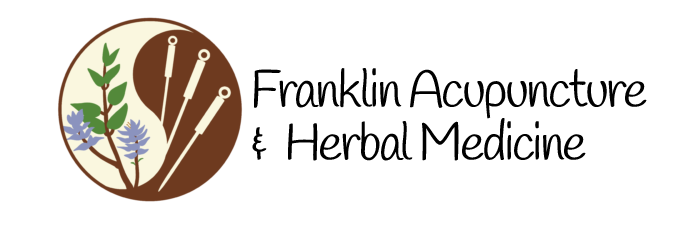We provide acupuncture for weight loss in Franklin, TN. We also use Chinese herbal medicine along with acupuncture in order to achieve optimal results.
If you struggle with your weight, you’re not alone. In fact, more than 30% of all U.S. adults meet the criteria for being obese.1
Acupuncture works to control weight on various levels.
Release Endorphins – With diet changes, many people experience cravings, which can lead to binge eating. Cravings in the body are often due to a lack of endorphins. Acupuncture can help to balance out the cravings by helping the body to release endorphins.
Reduce Stress – An increase in the “stress hormone” cortisol can alter the metabolism. Through the release of endorphins, the “stress hormone” can also be neutralized.
Support Digestion – Acupuncture can support the body to generate an efficient digestive process.
Americans spend billions of dollars annually on weight loss products, but obesity is still on the rise. People are even turning to surgery as a weight loss option. This is a drastic measure and can cause unwanted side effects.
Unfortunately, excess weight is not just a cosmetic issue. Being overweight is a risk factor for many conditions such as high blood pressure, diabetes, and heart disease. The good news is that maintaining a healthy weight can reduce your risk, and it’s never too late to get started. People seeking to address their weight concerns are turning to acupuncture as a natural and effective way to approach weight loss.
A traditional approach to healing
Acupuncture and Traditional Chinese Medicine (TCM) take a holistic, or whole-body approach to health. We are well versed in uncovering the root cause(s) or imbalances that have affected your weight.
We will take into consideration all of the factors that may have led to weight gain. By taking your whole self into account, we can get to the root of your health concerns, rather than just treating the symptoms.
- Exercise is an important component of any weight loss program. We will regimen and make recommendations that will work well with the acupuncture and Chinese herbal medicine.
- Diet is an integral aspect of a successful weight loss plan. We offer nutritional counseling designed for your specific needs.
- Stress relief may also be a part of your treatment. By learning to lower stress and anxiety through techniques such as breathing exercises, meditation, or gentle exercise, you may lose weight more easily, and possibly stop destructive habits such as overeating.
Your Initial visit will include an extensive review of your health history. At the completion of your first visit, your acupuncturist will provide you with a comprehensive diagnosis and an explanation of your treatment plan. Your treatments will focus on correcting any underlying imbalances that are connected to reaching your weight loss goals.
In addition to acupuncture, we use Chinese herbal medicine and nutrition in order to help you reach your weight loss goals. Whether you want to lose a few pounds or a significant amount, people are turning to acupuncture as a natural and effective way to approach weight loss. By working together with your practitioner, you can help your body regain its natural balance—and start taking steps toward true health and vitality.
Sources:
1. Center for Disease Control and Prevention. http://www.cdc.gov/nccdphp/dnpa/obesity
U.S. National Library of Medicine Medical Encyclopedia, Article – Obesity. 4/19/2004.
Komada, J., Article – Acupuncture for Weight Loss, 2003.
Pitchford, P., Healing with Whole Foods, North Atlantic Books, 1993.

